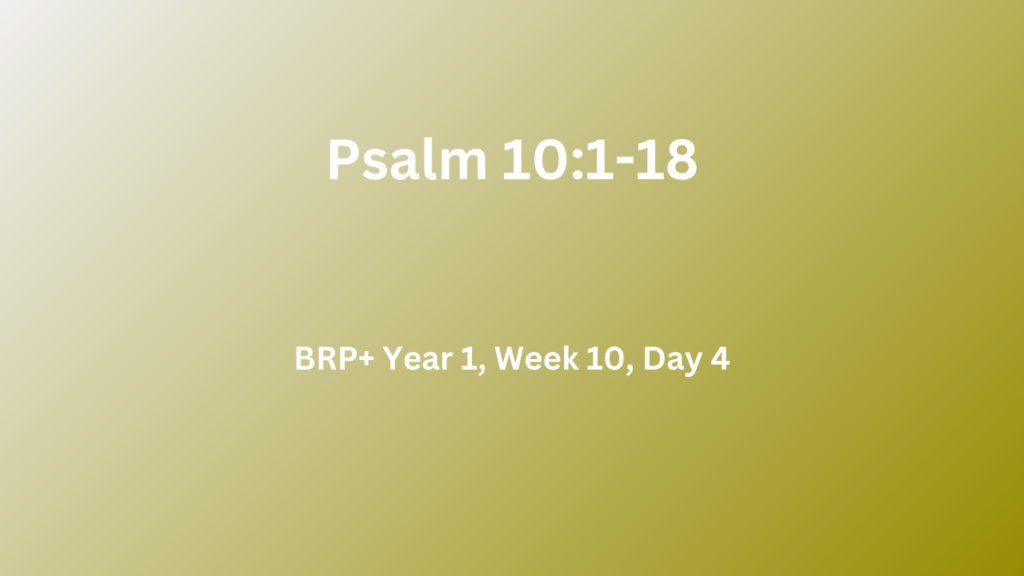Psalm 10:1-18
Q.1. How did the Psalmist describe his plight? Where was his focus? How did he describe the attitude, actions, and reward of the wicked? – (Ps.10:1-11)
The Psalmist was feeling discouraged because it seemed that God was hiding Himself from him, in his times of trouble (Ps.10:1). He felt this because his focus was on the wicked, rather than on God. He had pondered far too much on their attitudes, actions, and even their temporal reward – His ways prosper at all times; Your judgments are on high, out of his sight; As for all his adversaries, he snorts at them (Ps.10:5). We still see this attitude of the ungodly on display today: (i) All his thoughts are – There is no God (Ps.10:4). (ii) He says to (within) himself – I will not be moved; throughout all generations I will not be in adversity (Ps.10:6). (iii) He says to himself – God has forgotten; He has hidden His face; He will never see it (Ps.10:11). The Psalmist described the hot pursuit by the wicked after the afflicted (Ps.10:2) The wicked raged against God, as they refused to seek or acknowledge Him (Ps.10:3). They took advantage of the innocent, unfortunate, and afflicted (Ps.10:8-10). Yet – His mouth is full of curses and deceit and oppression; Under his tongue is mischief and wickedness (Ps.10:7). Some godless people do seem to prosper throughout their lifetime. However, as Jesus commented – They have their reward in full (Mt.6:2 & 5). The Lord pointed to a future reward for the righteous (Mt.10:26-31).
Q.2. What was the Psalmist’s question to God? What was his request on behalf of the defenceless and the wicked? What was his confidence in God? – (Ps.10:12-18)
The Psalmist asked how the wicked could constantly spurn God, and not be kept accountable – Why has the wicked spurned God? He has said to himself, ‘You will not require it’ (Ps.10:13). The good thing is that he took his doubts and despondency to God. He did acknowledge that God helps the unfortunate and orphan (Ps.10:14). He cried out to God to punish the evildoers (Ps.10:15), and to vindicate the orphans and oppressed (Ps.10:18). The Psalmist had a limited confidence in God, because of his inability to factor in the suffering of the righteous. In the New Testament, Peter devoted his whole first letter to the matter of suffering. He inspired his readers to follow the example of Christ, in suffering for righteousness (1 Pet.2:21-25). Jesus also accepted the suffering of the righteous prophets of the past (Mt.23:34-36). Paul urged the saints to remain true amid persecution and afflictions, because Christ will judge the wicked (2 Thes.1:3-10). The saints will be rewarded at the Judgment Seat of Christ. Suffering in this life, even at its worst, is only temporary. God, in patience, withholds His retribution. However, this will not last forever – Therefore having overlooked the times of ignorance, God is now declaring to men that all people everywhere should repent (WHY?) because He has fixed a day in which He will judge the world in righteousness through a Man whom He has appointed, having furnished proof to all men by raising Him from the dead (Acts 17:30-31)

